Review of M.A.S.H. Season 4
Introduction
Robert Altman`s original anti-war satire is pretty well overshadowed by its television spinoff. Based on a celebrated novel by Richard Hooker, M*A*S*H followed the triumphs and tragedies of the 4077th Mobile Army Surgical Hospital during the Korean War of 1950-3. The movie tempered the horrors of the consequences of war with black - often very black - comedy and gave 20th Century Fox one of its first box office successes of the 1970s. It also opened a timely forum over the US involvement in Vietnam.
The tv series premiered in September 1972 and lasted for eleven seasons over nine years (three times the length of the conflict it portrayed). 255 episodes and one tv movie finale that set viewing figure records. From the beginning, it centred on surgeon Captain Benjamin Franklin "Hawkeye" Pierce, played by Alan Alda. Pierce could have been a Dr Kildare, saving soldiers on the operating table on a weekly basis and going through crises of conscience on a similar routine. In a daring move against Hollywood convention, Pierce took to the screen tempering the expected paragon with human frailty, failings and humour. Railing against Army culture, Pierce was a genuine subversive, fond of wisecracks and the illicit still he ran in his tent. His commander, Lt.Colonel Henry Blake (McLean Stevenson) chose to turn a blind eye to the antics of Pierce and his tent-mate Captain "Trapper John" McIntyre around who most of the camp`s adventures revolved.
Regular Army featured in the shape of weaselly Major Frank Burns (Larry Linville), anally-retentive third bunkmate with Pierce and McIntyre. He lusted after the head nurse, Major Margaret "Hotlips" Houlihan (Loretta Swit - a model for Miss Piggy if there ever was one).
Other ranks included company clerk Corporal Walter "Radar" O`Reilly (Gary Burghoff - the only cast member to transfer from movie to tv series). Radar was so named for his ability to sense incoming casualties. Also making regular appearances were Corporal Maxwell Klinger (Jamie Farr), who never gave up hoping to work his ticket home by dressing in women`s clothes. Unfortunately nobody would buy his crazy act. Lastly was Father Mulcahy (William Christopher), the company chaplain who frequently faced having to give the last rites to young men who should have had their entire lives ahead of them.
M*A*S*H was a series with enormous heart, and is rightly considered one of the finest tv series ever produced by the US.
Season Four was a turning point for the series. Two of the leading actors (McLean Stevenson as Henry Blake and Wayne Rogers as Trapper John) had moved on to other things, and new characters needed to be introduced. The first character to join the cast was a new partner-in-crime for Hawkeye. Captain BJ Hunnicutt (Mike Farrell) was a freshly-drafted surgeon thrust headlong into human hamburger territory. He makes his debut in the first episode of the season, thrown in at the deep end when picked up from Seoul by Hawkeye and Radar.
The second new character was the 4077`s new commanding officer. Henry Blake had been killed on his way home (the first time US audiences had ever lost a beloved character in a comedy series). Temporarily, Major Frank (Ferret-Face) Burns had taken charge.
Colonel Sherman Potter was played by veteran actor Henry (Harry) Morgan. Potter was also a veteran, a curmudgeonly old surgeon who had served in two world wars. Regular Army, any hope Frank Burns might have had for a commander to run the 4077th with a rod of iron evaporated as Potter turned out to be an easygoing grandfather-figure. He cut Pierce and Hunnicutt a tremendous amount of slack, and developed a particularly avuncular relationship with Radar.
During Season Four, Hawkeye is declared dead and has to get news through to his father to the contrary. The 4077th becomes a temporary orphanage; a wounded officer claims to be Jesus Christ; Frank writes his will; Radar sets to procuring Col Potter some tomato juice; Hawkeye is concussed in a jeep accident; and in between life plays any number of tricks on the company.
Episode 97 "The Interview" was made in black-and-white in the style of a 1950s news programme, one of the first tv shows to attempt the trick.
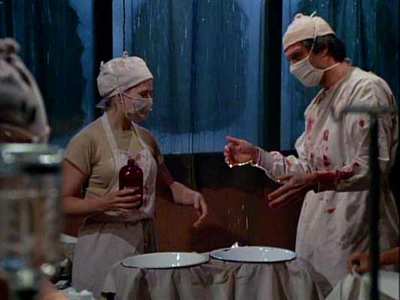
Video
Presented in the original 4:3, there are eight half-hour episodes to the disc (and three discs to the set). Picture quality is reasonable for a mid-seventies series - standing up well in comparison with the Columbia release of the Charlie`s Angels series, for instance. The image can be grainy in places, and film-transfer artefacts (such as bad splices) show up occasionally. Otherwise the image is pleasingly clean and sharp. Contrast may be a little dark in places, but that might be the film speed being pushed to counter poor filming weather at the Fox Ranch, where all the exteriors were shot.
Annoyingly, all the copyright notices are in 16:9, while the programmes are in 4:3.
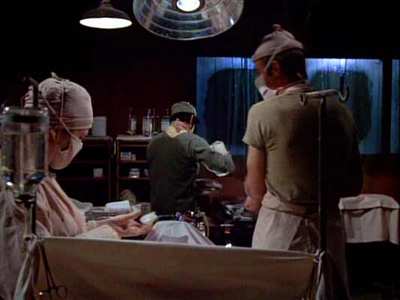
Audio
The audio reproduces the original mono mix in Dolby Digital 2.0 Mono. There are two options for the standard English soundtrack - with the laugh track (default) or without. Without is the only way to go. You can also watch the show with a French dub.
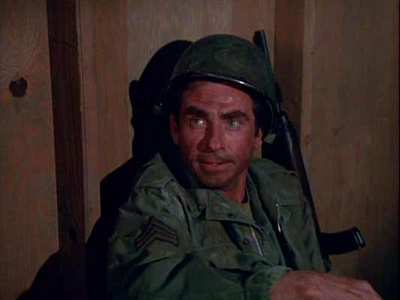
Features
Everything is subtitled (English and French). There is no room on the discs for anything else.
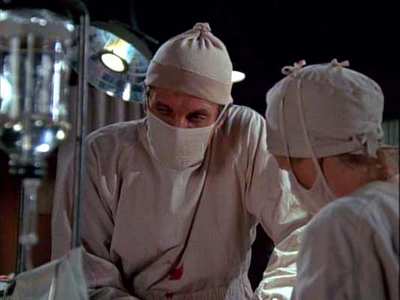
Conclusion
A fresh start for the three-year-old comedy series with the introduction of new characters. Season Four saw the introduction of characters "BJ" Hunnicutt and Colonel Sherman Potter, and in my opinion was the beginning of the golden age of the show. M*A*S*H had everything - humour, tragedy, pathos and drama. It could leave you with a warm fuzzy feeling for the characters, or seething anger at the stupidity of those who lead us. To the American networks it was a comedy, so they stuck a totally superfluous laughter track on it, reflecting their consideration of the intelligence of their viewers. It was much more than that.
M*A*S*H was one of the most influential shows ever made, and its legacy continues in subtle ways with so many modern shows. Most remarkably, and in no little part due to it being technically a period or costume drama (set in early 1950s Korea), the show hasn`t dated. It`s just as fresh and striking today as it was in 1975 when these episodes were first transmitted. Never bettered.
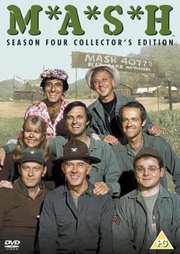




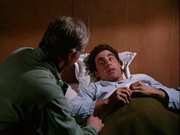
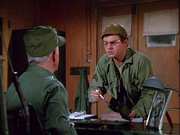
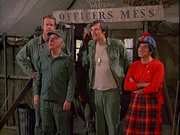
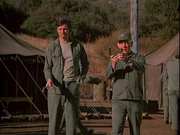
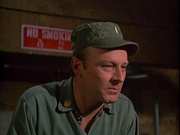
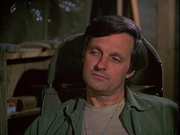
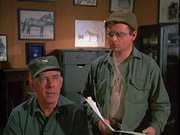
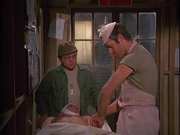
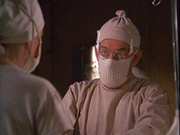
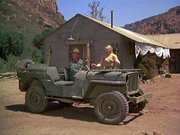
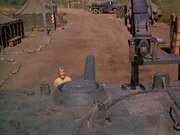
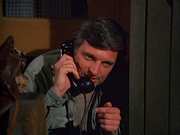
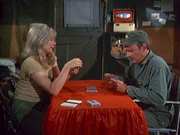
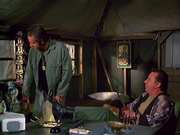
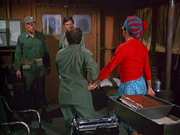
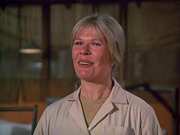
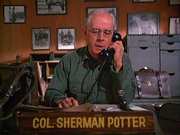
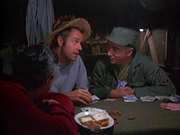
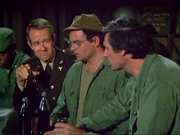
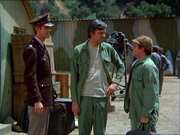
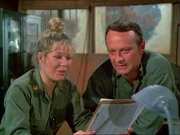
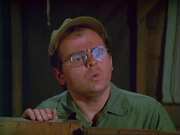
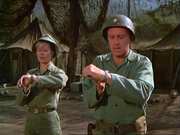
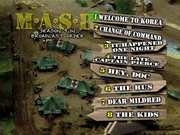














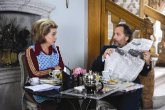

















Your Opinions and Comments
Be the first to post a comment!